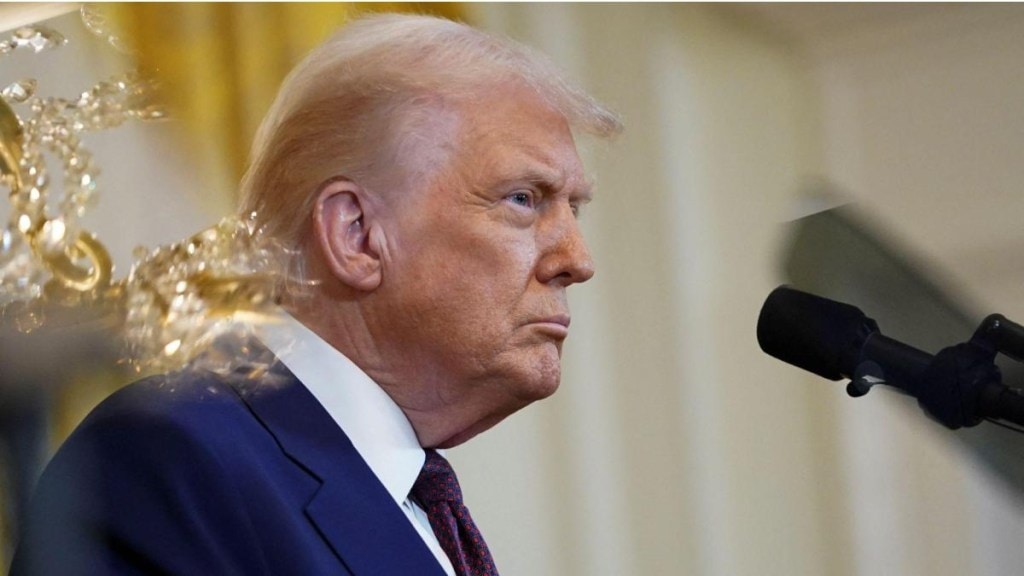A trade court in the United States has blocked President Trump’s “kind” Liberation Day tariffs on imported goods from going into effect. The Manhattan-based court ruled that Trump “overstepped” his authority while announcing tariffs on April 2 on countries that export more to the US than they import. Hong Kong Financial Secretary Paul Chan has reacted to the US court’s decision blocking the President’s April 2 tariffs. He said that this would “at least bring President Trump to reason”.
After the court blocked the tariffs levied by the US President on other nations, stocks buoyed by upbeat market sentiment.
“I argued from the start that Donald Trump’s claim that he could simply decree sky-high new taxes on imported goods depended on mangling the Constitution beyond recognition,” BBC quoted Ron Wyden, the senator from Oregon, as saying.
He added, “Trump’s trade taxes jacked up prices on groceries and cars, threatened shortages of essential goods and wrecked supply chains for American businesses large and small.”
The White House, however, has strongly opposed the court ruling, saying that “unelected judges should not decide how to properly address a national emergency”, with the Trump administration appealing the court ruling.
These tariffs would have levied a 10% tax on all imports, along with reciprocal tariffs. China and the European Union were expected to be the most effected with these tariffs given the higher percentage. Trump later placed a pause on these tariffs to pursue negotiations with these countries.
“The court does not pass upon the wisdom or likely effectiveness of the President’s use of tariffs as leverage. That use is impermissible not because it is unwise or ineffective, but because [federal law] does not allow it,” a three-judge panel ruled.
The ruling came in response to two lawsuits: one filed by the nonpartisan Liberty Justice Centre on behalf of five small US businesses that import goods from affected countries, and another brought by 13 US states. The plaintiffs argued that the tariffs harmed their ability to operate and compete in global markets.
Oregon Attorney General Dan Rayfield, a Democrat whose office is leading the state’s lawsuit, called Trump’s tariffs unlawful, reckless and economically devastating.
“This ruling reaffirms that our laws matter, and that trade decisions can’t be made on the president’s whim,” Rayfield said in a statement.
Here’s how other Internet users reacted to the US court’s ruling
Many on the Internet, as well, have hailed the US court decision, saying, “Today is real Liberation Day.”
“Federal court blocking Trump’s ‘Liberation Day tariffs is a massive win. This could save the economy from chaos,” said another.
“Donald’s ‘Liberation Day’ tariffs are clearly unlawful. We knew that all along,” said yet another social media user.
“Trump has already defied the Supreme Court. He’ll do the same here,” said one social media user.
Another commented, “This undermines any ‘deal’ that goes into effect and gives the US a significantly weaker position in negotiations.”
“Today is real Liberation Day,” commented a third.
A fourth posted, “Think Trump will back down or win the appeal?”

